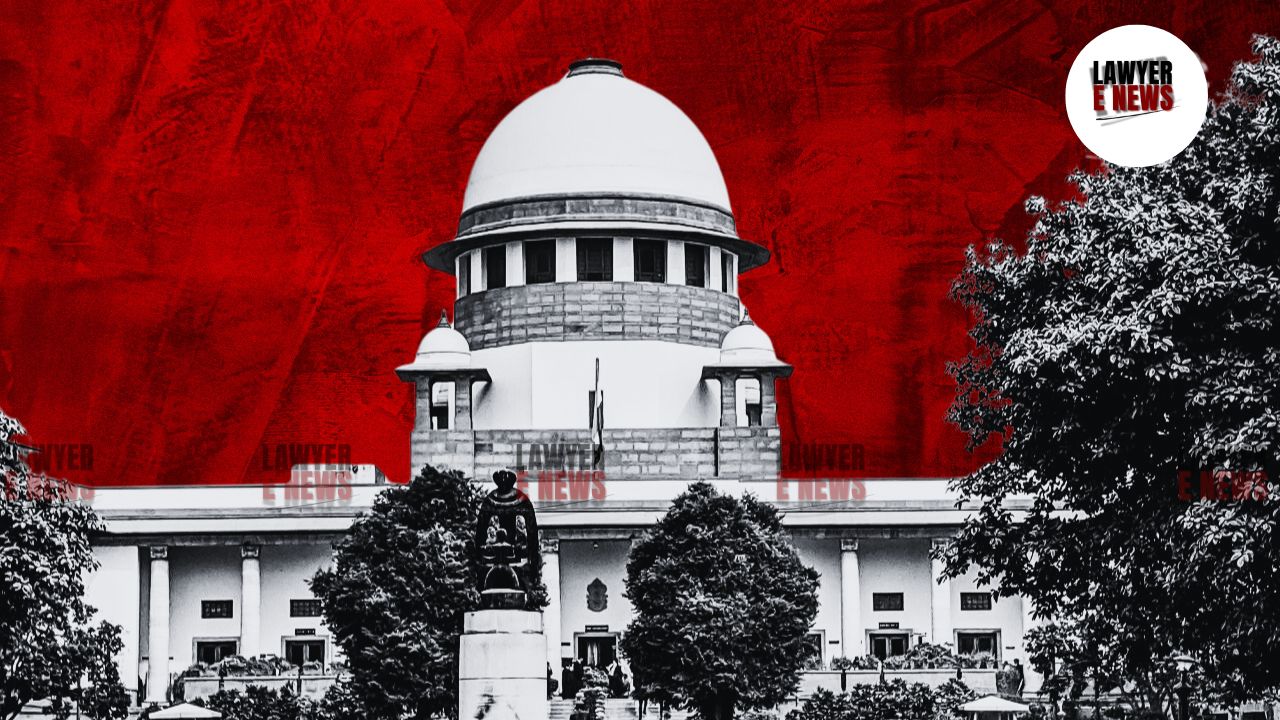-
by Admin
15 February 2026 2:36 AM



Supreme Court clarifying the legislative competence of States to govern court fee refunds under Entry 3 of List II (State List) of the Constitution. The Court, while dismissing an appeal by Sanjeevkumar Harakchand Kankariya, held that the Maharashtra Court Fees Act, 1959 (MCFA) prevails over the Court Fees Act, 1870 (CFA) in the State of Maharashtra. The Court, however, granted the appellant a full refund of court fees as a discretionary relief under Article 142 of the Constitution, considering the peculiar facts of the case.
"Court Fees Are a State Subject; No Inconsistency Between Central and State Laws"
The case arose from a dispute resolved through mediation under Section 89 of the Code of Civil Procedure (CPC). The appellant sought a 100% refund of court fees under Section 16 of the CFA, 1870. However, the Civil Court granted only a 50% refund, as prescribed by Section 43 of the MCFA, 1959. This decision was upheld by the Bombay High Court, which rejected the appellant’s claim of inconsistency between the two legislations.
In its judgment, the Supreme Court upheld the High Court’s reasoning, emphasizing that "court fees explicitly fall under Entry 3 of the State List, granting States the power to legislate on fees taken in all courts except the Supreme Court." The Court elaborated that the CFA, 1870, which is a Central enactment, does not apply in Maharashtra, as the MCFA, 1959 repealed the former within the State. The judgment noted, "No inconsistency arises between the CFA, 1870 and MCFA, 1959. The State law is valid and governs the issue of court fee refunds in Maharashtra."
Mediation vs. Lok Adalat: "Distinct Processes With Different Legislative Provisions"
The appellant argued that mediation settlements under Section 89 CPC should be treated on par with awards by Lok Adalats under Section 21 of the Legal Services Authorities Act, 1987 (LSA Act), which provide for a full refund of court fees. The Court dismissed this argument, stating, "Awards by Lok Adalats are distinct from mediated settlements. The LSA Act explicitly refers to the CFA, 1870 for refunds, but this cannot be extended to mediation settlements under Section 89 CPC, as these are governed by State laws like the MCFA."
The judgment cited State of Punjab v. Jalour Singh to highlight that Lok Adalats operate on principles of conciliation, and their awards are equivalent to decrees, whereas mediation under Section 89 CPC is a non-adjudicatory process.
Promoting ADR Mechanisms: "Refund Rules Should Encourage Settlement"
The Supreme Court acknowledged the importance of promoting Alternate Dispute Resolution (ADR) mechanisms like mediation to reduce the burden on the judiciary. It noted that the High Court had rightly recommended legislative changes to bring parity in refund provisions for Lok Adalat awards and mediation settlements. "To promote ADR, uniformity in refund rules is desirable," the Court observed.
The judgment noted that Maharashtra has already enacted such a reform. The Maharashtra Act No. X of 2018 amended the MCFA, introducing Section 16A, which provides for a full refund of court fees for disputes settled under Section 89 CPC. However, this amendment was prospective and did not apply to the appellant's case, as the dispute was resolved before 2018.
Refund Allowed Under Article 142: "Unique Circumstances Justify Relief"
While dismissing the appeal on legal grounds, the Court invoked its extraordinary powers under Article 142 to grant the appellant a full refund of court fees. "Considering the amicable settlement of the dispute, the relatively small amount involved, and the appellant’s bona fide conduct, we deem it appropriate to exercise our discretion under Article 142 to allow a full refund. However, this order shall not serve as a binding precedent," the Bench clarified.
The Supreme Court’s decision resolves a crucial question of legislative competence and reaffirms the primacy of State laws in governing court fees. While upholding the validity of the Maharashtra Court Fees Act, the Court’s invocation of Article 142 underscores its commitment to delivering substantive justice in individual cases.
Date of Decision: December 19, 2024
